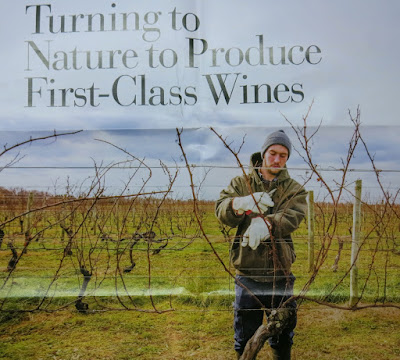The article then went on to describe how European growers are transitioning their vineyards from using chemical fertilizers toward more sustainable organic and biodynamic practices.
One thing that I found to be very interesting was the definition of the following:
- Sustainable: Sustainable farming allows for flexibility to respond to uncertain conditions, but it can be slippery slope in the hands of producers who don't rely on third-party certification to verify what they do. Groups have cropped up across the U.S. to boost integrity, including LIVE in the Pacific Northwest and Long Island Sustainable Winegrowing.
- Organic: Wines labeled organic in the U.S. are certified by the Department of Agriculture. "Made with organic grapes" means the grapes are 100% organic, and the wine is made in an organic-certified facility, according to Pam Strayer, an expert in organic and biodynamic wines. These wines can have sulfites up to 100 parts per million units of wine, aiding in preservation.
- Biodynamic: A producer must be certified by Demeter, an international nonprofit that verifies biodynamic practices and principles, to call itself "biodynamic," says Elizabeth Candelario, managing director at Demeter USA. Biodynamic practices go beyond organic to treat the vineyard as part of a complex "self-contained, self-sustaining" ecosystem that includes soil, plants, insects, and animals, Demeter says. Biodynamic practices include natural soil preparations, ideally made with components from the farm, including herbal teas, manure, and cow horns.
- Natural: A largely unregulated movement that encourages "natural" processes in the vineyard through winemaking. Natural wines don't have added sulfites (the USDA does have an "organic wine" category of no-added-sulfite wines, Strayer says). The risk is that these wines can spoil, so buy carefully.
Thanks for the article!

No comments:
Post a Comment